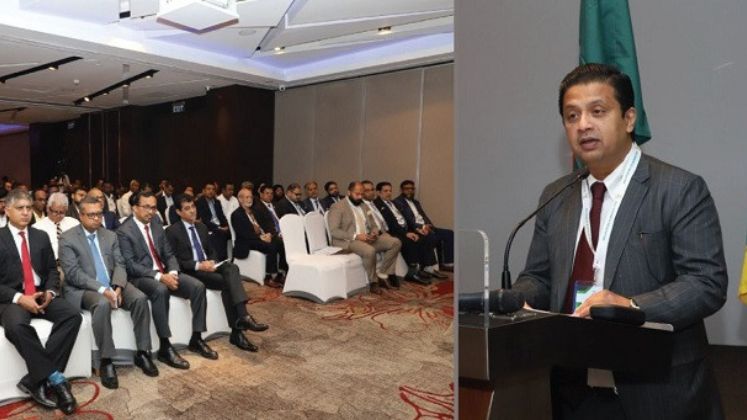
The Dhaka Chamber of Commerce & Industry (DCCI) has urged the swift signing of a Preferential Trade Agreement (PTA) with Sri Lanka to unlock significant trade and investment opportunities between the two South Asian nations. Taskeen Ahmed, President of DCCI, emphasized that accelerating the PTA process could serve as a vital catalyst for enhancing economic ties and deepening regional integration.
Ahmed made these remarks during a business dialogue held at the Hilton Colombo Residence Hotel, organized jointly by the DCCI and the Ceylon Chamber of Commerce amid a high-level visit by the DCCI delegation to Sri Lanka. Sri Lanka’s Minister for Industry and Entrepreneurship Development, Sunil Handunneththi, attended as the chief guest.
“Despite our close political relations and strong people-to-people connections, bilateral trade remains far below its potential,” said Ahmed. “A well-executed PTA can significantly boost trade volumes and strengthen economic cooperation.”
In the fiscal year 2023–24, bilateral trade between Bangladesh and Sri Lanka totaled only US $ 134.06 million, a figure both sides acknowledged as insufficient given the countries’ capabilities and complementarities.
Ahmed highlighted opportunities for Sri Lankan investors to explore Bangladesh’s burgeoning sectors, such as logistics infrastructure, tourism, education, healthcare, renewable energy, agro-processing, information technology, and construction. He also encouraged Sri Lanka to increase imports of Bangladeshi pharmaceuticals, readymade garments, footwear, jute products, and electronics, underscoring Bangladesh’s resilient manufacturing sector.
Furthermore, Ahmed pointed out that Sri Lanka’s expertise in maritime economy, deep-sea fishing, and port management could support Bangladesh in developing these strategic sectors.
Duminda Hulangamuwa, Chairman of the Ceylon Chamber of Commerce, echoed these sentiments, describing Bangladesh as a longstanding friend and a pro-business country with a resilient private sector. He called for decisive measures to elevate bilateral trade and investment, especially in light of ongoing economic reforms in both nations.
Sri Lanka’s Minister Handunneththi also welcomed the initiative, noting that while bilateral relations are strong, trade remains underdeveloped. He highlighted key sectors such as textiles, pharmaceuticals, shipbuilding, and digital services, where collaboration could be expanded. Handunneththi also pointed out that Sri Lanka is now offering incentives, improved logistics, harmonized standards, and a corruption-free investment environment to attract foreign investors.
A major highlight of the event was the signing of a Memorandum of Understanding (MoU) between the DCCI and the Ceylon Chamber of Commerce to institutionalize cooperation and promote private sector linkages. The MoU aims to facilitate trade promotion, investment flows, and the exchange of knowledge and resources.
The event was attended by key dignitaries, including Bangladesh’s High Commissioner to Sri Lanka, Andalib Elias, Sri Lanka’s High Commissioner to Bangladesh, Dharmapala Weerakkody, and Asanka Ratnayake, President of the Sri Lanka-Bangladesh Business Council. Rizwan Rahman, a former DCCI President, delivered a keynote speech highlighting Bangladesh’s competitive advantages, such as a young skilled workforce, Special Economic Zones (SEZs), and favorable policy incentives, making it an attractive destination for Sri Lankan and other foreign investors.
Over 200 B2B matchmaking meetings took place during the event, with participation from more than 90 Sri Lankan companies engaging with DCCI members, a significant step toward fostering new business partnerships and regional cooperation.






